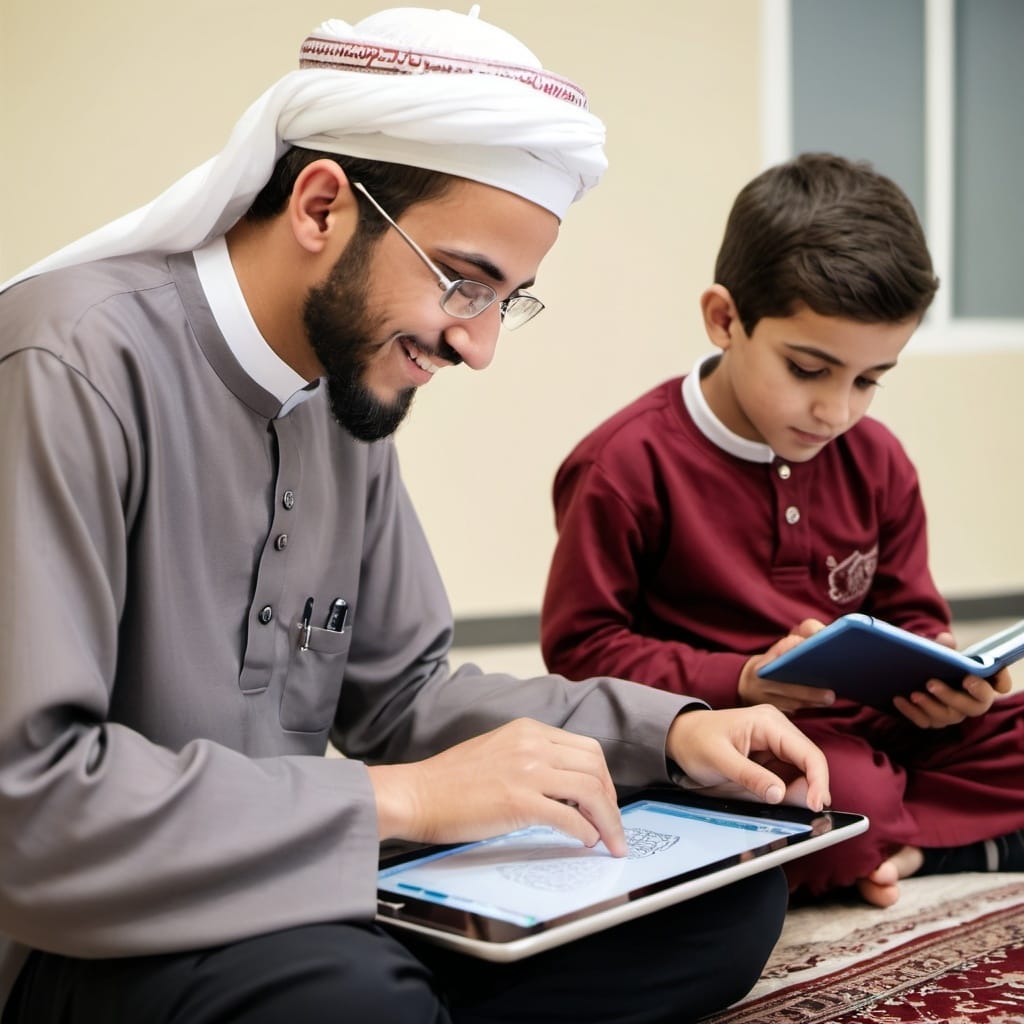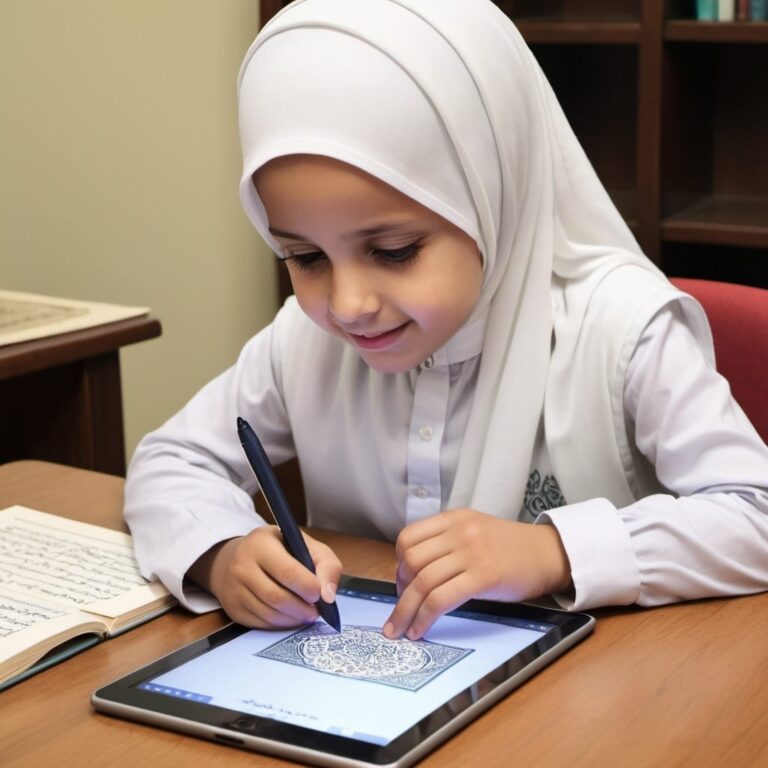The Quran’s Eternal Wisdom Top 17 Teachings for Today’s Muslims
Introduction
The Quran, the holy e-book of Islam, is a undying guide that keeps to offer know-how and route to Muslims round the arena. Whether you are a Muslim woman, a determine, or a person eager to research Arabic, the Quran’s teachings are applicable and impactful today. In this put up, we can discover the top 17 teachings from the Quran, offer practical recommendation on the way to apply those teachings in daily existence, share insights from distinguished Quranic students, and solution regularly asked questions about Quranic teachings.
Let’s start this enlightening adventure to understand what the Quran teaches and how it is able to enrich our lives.

Importance of Faith in One God
One of the essential teachings of the Quran is the perception in one God, Allah. This monotheistic precept is crucial to Islam and is emphasised again and again in the Quran.
Verses and Interpretations
The Quran states, “Say, He is Allah, [who is] One, Allah, the Eternal Refuge.” (Surah Al-Ikhlas, 112:1-2). This verse highlights the oneness of Allah and His eternal nature.
Practical Applications
In our every day lives, keeping unwavering religion in Allah can offer comfort and energy in the course of hard times. Regular prayers and remembrance (dhikr) can help fortify this faith.
Scholar Insights
Prominent pupils like Imam Al-Ghazali have emphasized that authentic faith in Allah brings inner peace and resilience.
The Importance of Prayer
Prayer (Salah) is a essential thing of a Muslim’s existence and is one of the Five Pillars of Islam.
Verses and Interpretations
The Quran states, “Indeed, prayer prohibits immorality and wrongdoing, and the remembrance of Allah is extra.” (Surah Al-Ankabut, 29:45).
Practical Applications
Setting aside time for the 5 day by day prayers can create a based ordinary and function a constant reminder of our connection to Allah.
Scholar Insights
Scholars like Ibn Taymiyyah have highlighted that prayer purifies the soul and brings one toward Allah.
3. Importance of Charity
Charity (Zakat) is every other pillar of Islam that emphasizes the importance of assisting the ones in need.
Verses and Interpretations
The Quran instructs, “And establish prayer and deliver Zakat, and whatever properly you recommend for yourselves—you’ll locate it with Allah.” (Surah Al-Baqarah, 2:a hundred and ten).
Practical Applications
Contributing to charitable reasons and supporting those much less fortunate can foster a sense of network and compassion.
Scholar Insights
Imam Abu Hanifa careworn that Zakat isn’t always just a monetary obligation however a method to purify one’s wealth and soul.
4. The Importance of Fasting
Fasting at some stage in the month of Ramadan is a sizeable practice for Muslims, selling strength of mind and empathy for the much less fortunate.
Verses and Interpretations
The Quran says, “O you who have believed, decreed upon you is fasting because it turned into decreed upon those earlier than you that you may end up righteous.” (Surah Al-Baqarah, 2:183).
Practical Applications
Observing fasts all through Ramadan and elective fasts at some point of the year can beautify spiritual boom and willpower.
Scholar Insights
Imam Malik noted that fasting teaches persistence and humility, aligning one’s moves with the will of Allah.
5. The Value of Knowledge
The Quran locations great emphasis on looking for expertise and information.
Verses and Interpretations
The Quran states, “Read inside the call of your Lord who created. He created man from a clot. Read, and your Lord is the most Generous—Who taught by means of the pen—taught guy that which he knew not.” (Surah Al-Alaq, 96:1-five).
Practical Applications
Pursuing each religious and worldly understanding can cause non-public and communal increase.
Scholar Insights
Scholars like Imam Shafi’i’ve emphasised that information is fundamental to expertise and working towards Islam efficiently.
6. Justice and Fairness
The Quran advocates for justice and equity in all aspects of lifestyles.
Verses and Interpretations
The Quran states, “O you who’ve believed, be consistently status firm in justice, witnesses for Allah, even though it’s in opposition to yourselves or mother and father and family.” (Surah An-Nisa, 4:one hundred thirty five).
Practical Applications
Upholding justice in personal and professional dealings fosters trust and concord in society.
Scholar Insights
Imam Ahmad ibn Hanbal emphasized that justice is a manifestation of Allah’s will in the world.
7. The Importance of Patience
Patience (Sabr) is a recurring topic in the Quran, encouraging Muslims to endure hardships with resilience.
Verses and Interpretations
The Quran advises, “O you who’ve believed, searching for assist through persistence and prayer. Indeed, Allah is with the patient.” (Surah Al-Baqarah, 2:153).
Practical Applications
Practicing endurance in hard situations can cause private growth and divine reward.
Scholar Insights
Imam An-Nawawi remarked that patience is a distinctive feature that strengthens one’s faith and reliance on Allah.
8. Compassion and Kindness
The Quran teaches the importance of compassion and kindness towards others.
Verses and Interpretations
The Quran instructs, “And lower to them the wing of humility out of mercy and say, ‘My Lord, have mercy upon them as they introduced me up [when I was] small.'” (Surah Al-Isra, 17:24).
Practical Applications
Showing kindness to family, buddies, or even strangers can create a nice and supportive community.
Scholar Insights
Imam Al-Bukhari emphasized that compassion is a reflection of Allah’s mercy in our lives.
9. The Sanctity of Life
The Quran upholds the sanctity of human life and condemns unjust violence.
Verses and Interpretations
The Quran states, “And do now not kill the soul which Allah has forbidden, except with the aid of right.” (Surah Al-Isra, 17:33).
Practical Applications
Respecting the price of life and selling peace are vital for a harmonious society.
Scholar Insights
Imam Ibn Kathir highlighted that protective existence is a essential precept in Islam.
10. Honesty and Integrity
Honesty and integrity are middle values emphasised within the Quran.
Verses and Interpretations
The Quran advises, “O you who’ve believed, worry Allah and talk phrases of suitable justice.” (Surah Al-Ahzab, 33:70).
Practical Applications
Being truthful in all interactions builds consider and credibility.
Scholar Insights
Imam Abu Dawood careworn that honesty is a key characteristic of a real believer.
11. Respect for Parents
The Quran places fantastic significance on respecting and worrying for one’s mother and father.
Verses and Interpretations
The Quran instructs, “And We have enjoined upon guy [care] for his mother and father. His mom carried him, [increasing her] in weakness upon weak point, and his weaning is in years. Be grateful to Me and for your dad and mom; to Me is the [final] vacation spot.” (Surah Luqman, 31:14).
Practical Applications
Showing gratitude and admire to mother and father strengthens family bonds and earns divine delight.
Scholar Insights
Imam Suyuti emphasized that respecting parents is a way to acquire Allah’s benefits.
12. The Importance of Forgiveness
Forgiveness is a key coaching within the Quran, promoting reconciliation and team spirit.
Verses and Interpretations
The Quran advises, “And whoever pardons and makes reconciliation—his praise is [due] from Allah.” (Surah Ash-Shura, forty two:40).
Practical Applications
Forgiving others can lead to inner peace and fortify relationships.
Scholar Insights
Imam Al-Haddad stated that forgiveness displays Allah’s characteristic of mercy.
13. The Value of Gratitude
Gratitude (Shukr) is an important concept in the Quran, encouraging Muslims to realize Allah’s benefits.
Verses and Interpretations
The Quran states, “And [remember] when your Lord proclaimed, ‘If you are thankful, I will truely boom you [in favor]; but in case you deny, indeed, My punishment is extreme.'” (Surah Ibrahim, 14:7).
Practical Applications
Expressing gratitude through prayers and correct deeds fosters a nice outlook on existence.
Scholar Insights
Imam Ibn Qayyim emphasised that gratitude ends in improved blessings and contentment.
14. The Concept of Accountability
The Quran teaches that each man or woman is accountable for their actions.
Verses and Interpretations
The Quran states, “So whoever does an atom’s weight of proper will see it, and whoever does an atom’s weight of evil will see it.” (Surah Az-Zalzalah, 99:7-8).
Practical Applications
Being aware of 1’s movements and striving to do true can cause a fulfilling and righteous existence.
Scholar Insights
Imam An-Nawawi highlighted that accountability motivates people to stay responsibly.
15. The Importance of Community
The Quran emphasizes the importance of community and mutual aid.
Verses and Interpretations
The Quran advises, “And cooperate in righteousness and piety, however do not cooperate in sin and aggression.” (Surah Al-Ma’idah, 5:2).
Practical Applications
Participating in community sports and helping one another fosters unity and energy.
Scholar Insights
Imam Al-Ghazali mentioned that a robust network is critical for individual and collective nicely-being.
16. The Value of Humility
Humility is a ordinary subject matter within the Quran, encouraging Muslims to stay humble and modest.
Verses and Interpretations
The Quran states, “And the servants of the Most Merciful are those who stroll upon the earth effortlessly, and while the ignorant deal with them [harshly], they say [words of] peace.” (Surah Al-Furqan, 25:sixty three).
Practical Applications
Practicing humility in interactions and averting vanity can cause peaceful and respectful relationships.
Scholar Insights
Imam Al-Bukhari emphasized that humility is an indication of true faith and piety.
17. The Importance of Reflection
The Quran encourages reflection and contemplation as a way to understand Allah’s creation and reason.
Verses and Interpretations
The Quran advises, “Do they not look into the world of the heavens and the earth and the entirety that Allah created?” (Surah Al-A’raf, 7:185).
Practical Applications
Taking time to reflect on lifestyles and nature can deepen one’s expertise of Allah’s awareness and mercy.
Scholar Insights
Imam Ibn Al-Jawzi referred to that reflection strengthens faith and brings one in the direction of Allah.
How to Apply Quranic Teachings in Daily Life
Integrating the Quran’s teachings into each day lifestyles can transform personal and familial relationships.
Personal Practices
- Daily Recitation: Reading and reflecting on the Quran day by day can offer guidance and solace.
- Prayer and Supplication: Regular prayers and duas can enhance one’s connection with Allah.
- Charitable Acts: Engaging in acts of charity can foster a feel of community and compassion.
Family Practices
- Family Discussions: Discussing Quranic teachings with circle of relatives contributors can promote information and harmony.
- Shared Prayers: Performing prayers collectively can reinforce own family bonds.
- Community Involvement: Participating in community activities as a circle of relatives can instill values of cooperation and aid.
Community Practices
- Educational Programs: Attending Quranic have a look at groups and lectures can decorate understanding and knowledge.
- Volunteering: Volunteering for community carrier tasks can promote unity and compassion.
- Social Support: Offering help to the ones in need in the network can foster a sense of belonging and unity.
Insights from Quranic Scholars
Prominent scholars have supplied valuable insights into the significance of Quranic teachings.
- Imam Al-Ghazali: Known for his emphasis on spirituality and ethical conduct, Imam Al-Ghazali’s works offer profound insights into the application of Quranic teachings in every day lifestyles.
- Imam Ibn Taymiyyah: His emphasis on the importance of religion and adherence to Islamic concepts provides guidance on living a righteous existence.
- Imam An-Nawawi: His focus on the virtues of endurance, humility, and responsibility highlights the moral dimensions of Quranic teachings.
FAQs on Quranic Teachings
- What is the Quran?
- The Quran is the holy book of Islam, believed to be the phrase of God as found out to Prophet Muhammad (PBUH).
- How is the Quran based?
- The Quran is divided into 114 chapters (Surahs) and over 6,000 verses (Ayahs).
- Why is the Quran vital?
- The Quran gives non secular steering, moral concepts, and legal guidelines for Muslims to observe.
- What is the primary message of the Quran?
- The main message of the Quran is the oneness of God (Tawhid) and guidance for living a righteous existence.
- How should the Quran be read?
- The Quran have to be read with understanding and mirrored image, preferably in its original Arabic language, however translations also can be used.
- What are a few common subject matters inside the Quran?
- Common topics include religion, justice, compassion, patience, and the importance of knowledge.
- What is the significance of prayer within the Quran?
- Prayer is a method of connecting with Allah, looking for steerage, and preserving non secular field.
- How does the Quran address social problems?
- The Quran addresses social problems by promoting justice, fairness, and compassion for all people.
- How can one observe Quranic teachings in each day lifestyles?
- By incorporating concepts which includes honesty, persistence, and charity into every day moves and choices.
- What is the role of women consistent with the Quran?
- The Quran advocates for the distinction, rights, and duties of ladies, emphasizing their equal religious status.
- How does the Quran approach interfaith family members?
- The Quran encourages respectful talk and coexistence with humans of other faiths.
- What is the concept of responsibility within the Quran?
- The Quran teaches that individuals are accountable for their actions and might be judged consequently.
- How does the Quran sell environmental stewardship?
- The Quran emphasizes the significance of caring for the earth and its sources.
- What is the significance of fasting in the Quran?
- Fasting is a method of spiritual purification, strength of will, and empathy for the less lucky.
- How does the Quran deal with the idea of forgiveness?
- The Quran encourages forgiveness and reconciliation as a method of preserving harmony and peace.
- What is the importance of know-how inside the Quran?
- The Quran locations brilliant emphasis on seeking information as a way of knowledge and practising the faith.
- How does the Quran manual moral behavior?
- The Quran affords ideas for moral behavior, consisting of honesty, integrity, and justice.
- What is the significance of charity within the Quran?
- Charity is a method of assisting the ones in need, purifying one’s wealth, and earning divine praise.
- How does the Quran address own family relationships?
- The Quran emphasizes the significance of affection, respect, and care within the circle of relatives.
- What is the role of community in the Quran?
- The Quran highlights the importance of community help, cooperation, and mutual assistance.
- Conclusion
- The teachings of the Quran provide undying expertise and guidance for Muslims of all backgrounds. By information and making use of these teachings, individuals can lead gratifying lives, foster sturdy circle of relatives bonds, and make contributions definitely to their communities.
- Whether you are a Muslim woman, a figure, or someone eager to deepen your know-how of the Quran, the insights and sensible advice shared in this submit let you combine these teachings into your day by day life.
- Explore the depths of the Quran, are trying to find information, and strive to encompass its standards. May Allah manual us all in this enlightening route.








